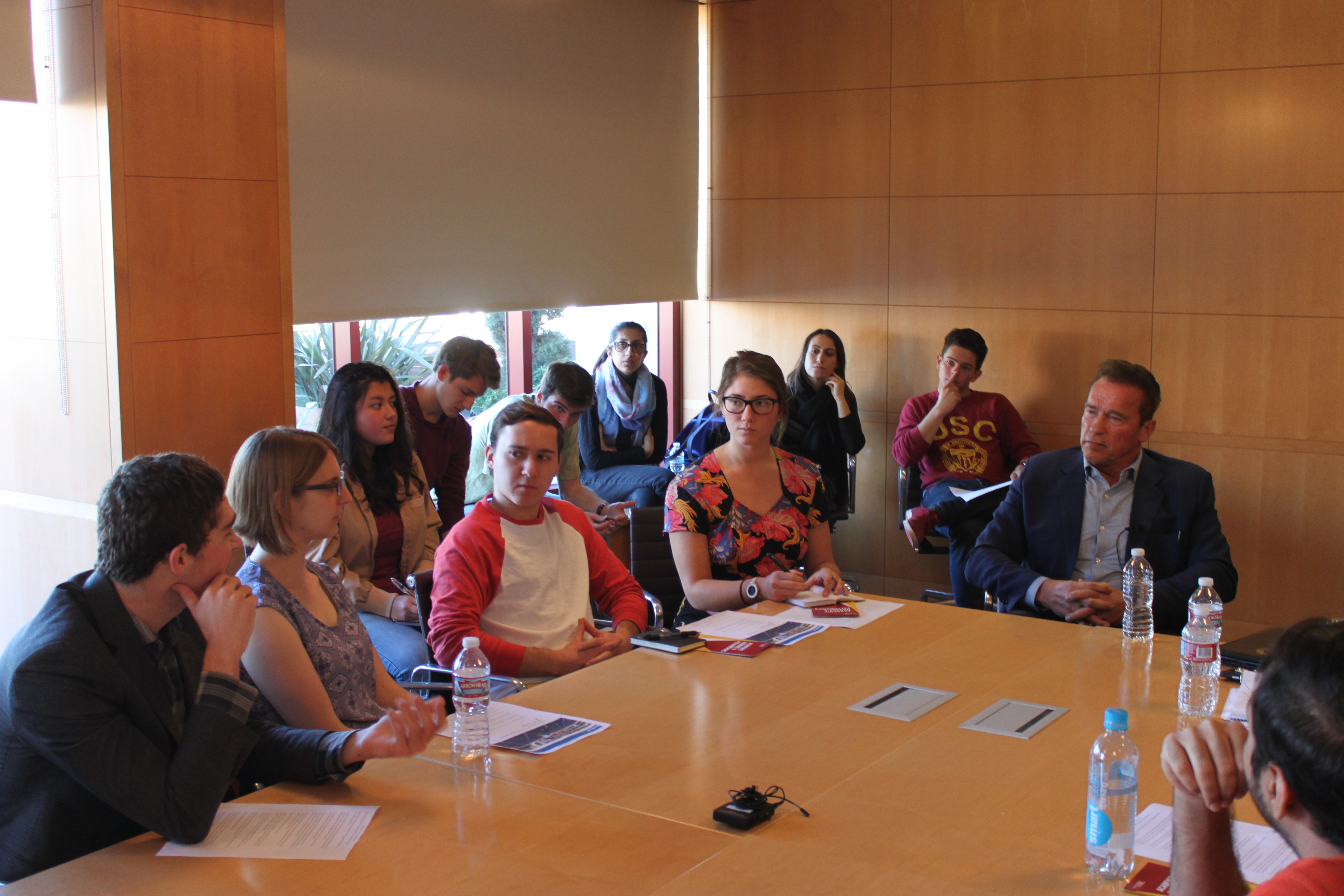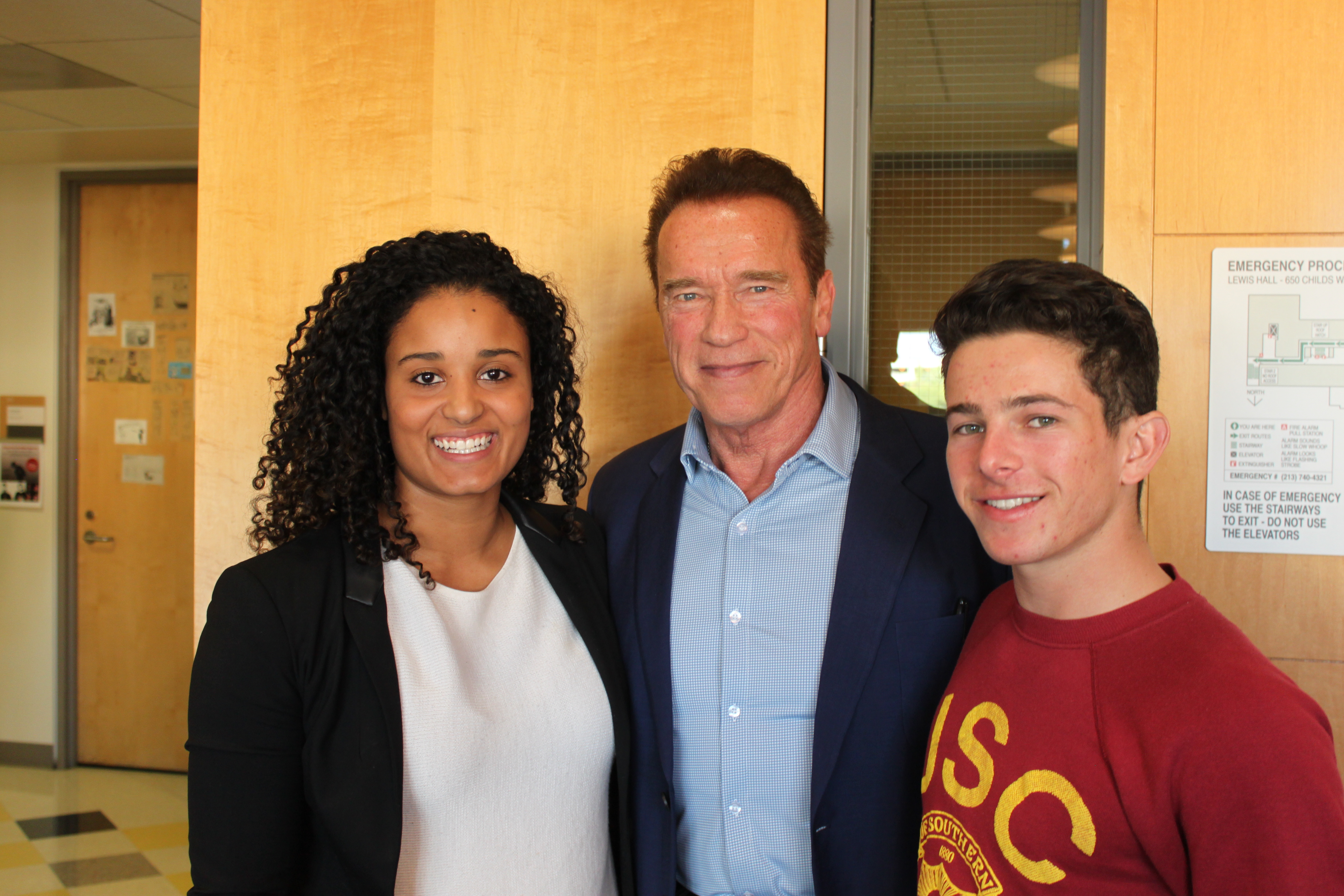Arnold Schwarzenegger, USC’s Governor Downey Professor of State and Global Policy, kicked off the new semester by meeting with members of the USC Environmental Student Assembly (ESA) and environmental studies faculty members to discuss the best strategies for continuing the momentum of environmental progress.
A wide range of strategies and topics were discussed at the meeting, including the best ways to communicate about climate change, and the importance of continued sub-national action. Schwarzenegger shared a story of how his administration and the State of California fought the George W. Bush administration’s attempts to prevent California from regulating greenhouse gasses by claiming they were not a “pollutant” and therefore not covered by the EPA regulations. The case went all the way to the U.S. Supreme Court where the Court ruled in favor of California. This story highlighted the point that states fighting the federal government to pursue strong environmental policies is not new, and we can and must continue this fight.
Schwarzenegger, a Republican, encouraged the group to not make environmentalism a partisan issue, and reminded them how Presidents Teddy Roosevelt, Ronald Reagan, and even Richard Nixon passed significant laws protecting American open spaces, air and natural resources. Schwarzenegger encouraged the students that in the likely fights to come with the Trump administration on environmental policies, making environmental protection a partisan cause only serves to have both sides dig in and does not help win over public support. The group discussed how outside the United States environment and climate policies are rarely politically divisive issues and how it is only recently that environmentalism has become such a polarizing issue in U.S.
Institute Global Director Bonnie Reiss discussed the findings of a poll that that Institute conducted with Field Research Corporation in June. The poll found that while only a small percentage of registered Republicans listed climate change as a concern, the majority listed clean air and clean water as an important issue. These results help validate how to best approach and communicate climate and environmental issues if the goal is to win greater public support.
Professor Schwarzenegger wrapped up the session by inspiring students and reminded them how all great movements and change start at the grass roots level and not from government. He went on to add that each and every student can make a difference and impact the world.



